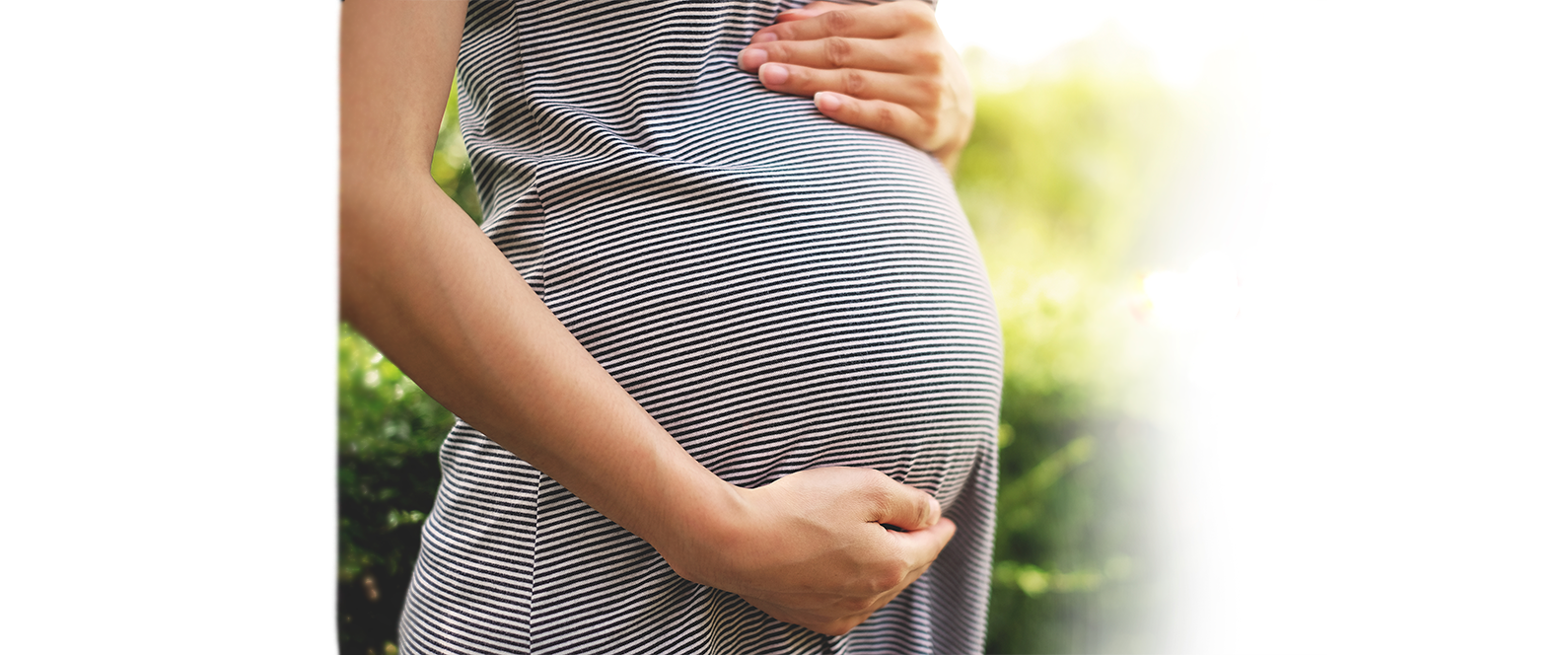Pregnancy, the newborn baby, breastfeeding and COVID-19
 Pregnant women should take adequate care and follow recommended precautions to protect themselves against COVID-19
Pregnant women should take adequate care and follow recommended precautions to protect themselves against COVID-19
Care during pregnancy is important for the physical and mental health of the future mother and her baby. Currently, there is no evidence that pregnant women are at a higher risk of COVID-19 than the general population of the same age and with similar risk factors. Also, we do not know if COVID-19 causes problems during pregnancy or affects the health of the baby after birth. Pregnant women should take adequate care and follow recommended precautions to protect themselves against COVID-19 and also promptly report possible symptoms to healthcare providers.
Preventive measures for pregnant women
Pregnant women should practice standard preventive measures outlined below to minimize the risk of infection:
- Wash hands frequently with an alcohol-based hand rub or soap and water.
- Keep the recommended physical distance from others and avoid crowded spaces.
- Wear a facemask outside your home.
- Avoid touching eyes, nose, and mouth.
- Practice respiratory hygiene by covering mouth and nose with a bent elbow or a tissue when coughing or sneezing. Dispose of the used tissue immediately.

Symptoms in pregnant women or those who have recently delivered
If a pregnant woman has symptoms such as coughing, sneezing, fever, or shortness of breath, they will need assessment by healthcare professionals. The World Health Organization (WHO) recommends prioritizing pregnant women with symptoms of COVID-19 for testing. Check with your doctor or midwife regarding the need for testing.
The following is recommended in Qatar for any pregnant women or women who have recently delivered their baby who are experiencing symptoms:
- Call the national COVID-19 hotline on 16000 before going to a health facility and following the directions given by healthcare professionals
- Self-quarantine and avoid any contact with others
- Practice the ‘sick day rules’ for pregnancy:
- Keep hydrated and drink plenty of water
- Eat a healthy diet
- Rest and postpone exercise
- Gargle with warm water and salt
- Monitor your temperature and when needed use acetaminophen (paracetamol) rather than anti-inflammatory drugs (ibuprofen)
- Always follow your healthcare professional team’s recommendations.
The newborn baby and COVID-19
We still do not know if a pregnant woman with COVID-19 can transmit the virus to her baby during pregnancy or delivery. To date, the virus has not been found in samples of amniotic fluid or breastmilk. All babies born to confirmed COVID-19 positive mothers or symptomatic mothers are tested. If a woman has an infection and she just delivered, based on her clinical condition and other factors, she could be transferred to home isolation or to one of the quarantine facilities. Doctors will discuss this with the woman and her family after delivery.

Breastfeeding and COVID-19
Women with COVID-19 can breastfeed if they wish to do so. They should:
- Wear a facemask while caring or feeding the baby
- Wash hands before and after touching the baby
- Wash hands before touching breast pump or bottles
- Avoid coughing or sneezing on the baby while feeding
- Where a breast pump is used, follow recommendations for pump cleaning after each use
- For babies who are bottle-fed with formula or expressed milk, strict adherence to sterilization guidelines is recommended.
If a woman is too unwell to breastfeed her baby due to COVID-19 or other complications, she can be supported to safely provide her baby with breastmilk in other ways including expressing milk and donor human milk. Breastfeeding can be started or resumed when able to do so.
Source: World Health Organization | Guidance for pregnant women and new mothers – Ministry of Public Health Qatar | Infection with corona virus COVID-19 during pregnancy - Ministry of Public Health Qatar
Contributors: Dr. Sonia Chaabane, Dr. Sohaila Cheema and Dr. Sathyanarayanan Doraiswamy
Editing: Mr. Richard Harris